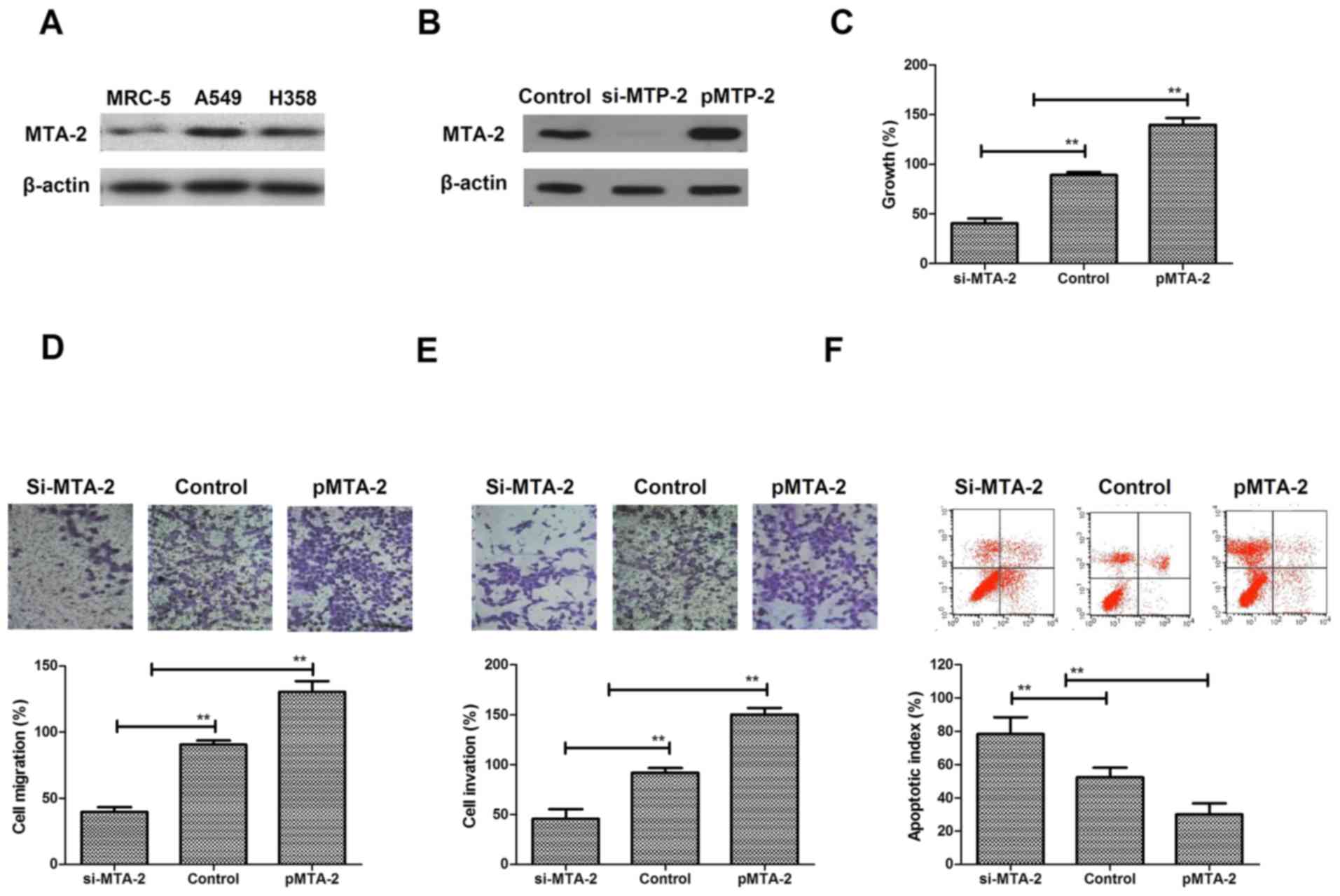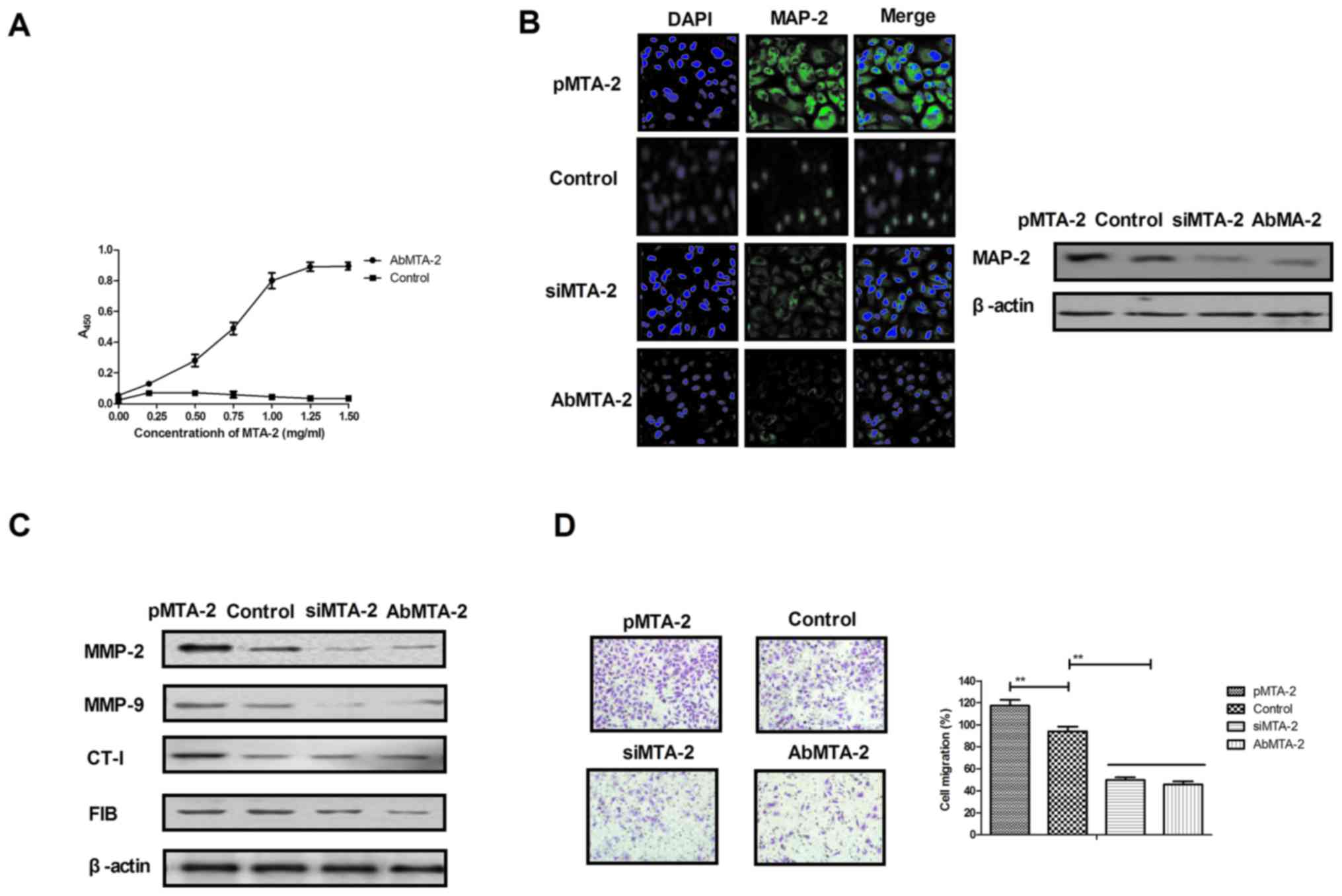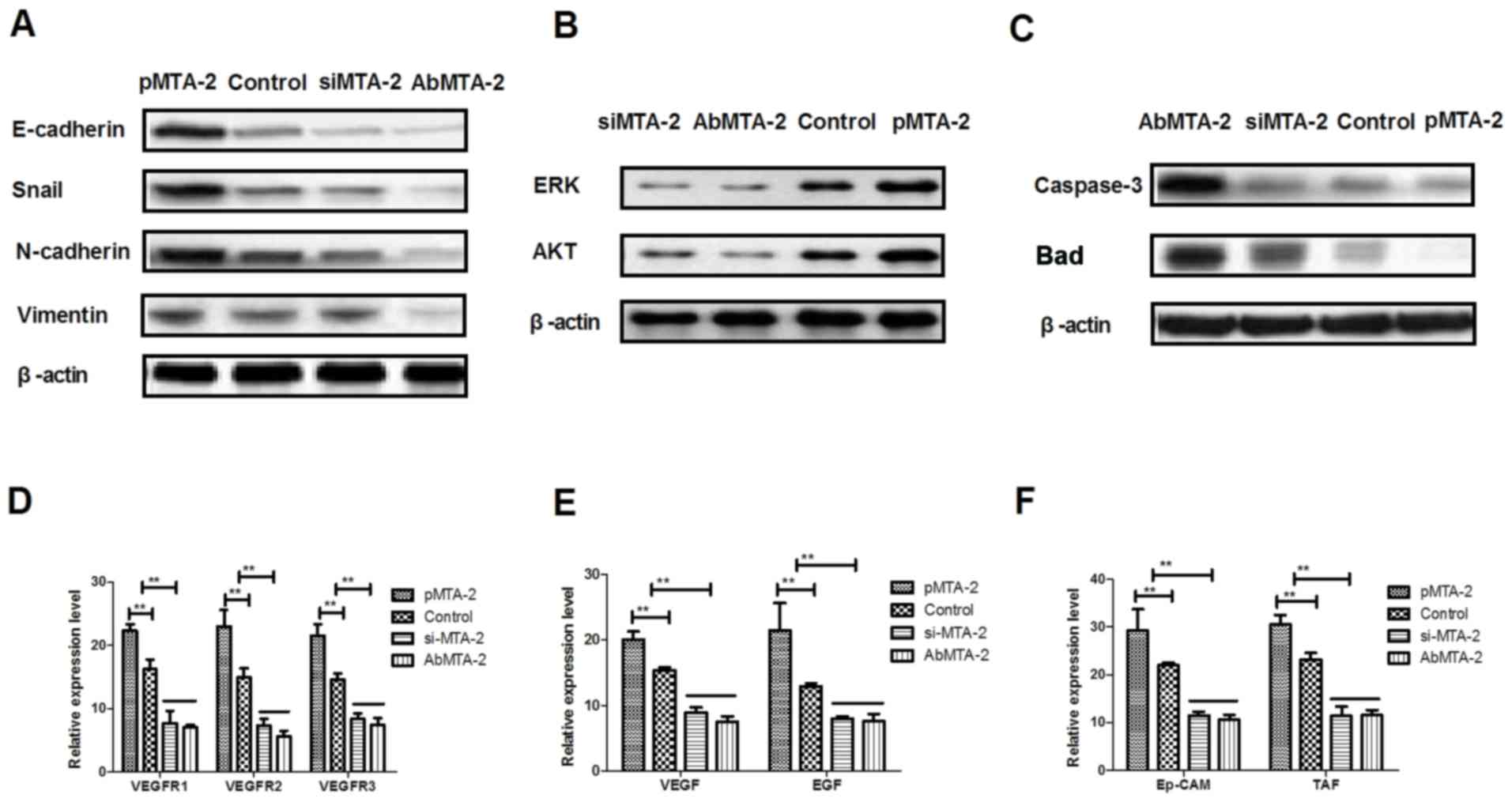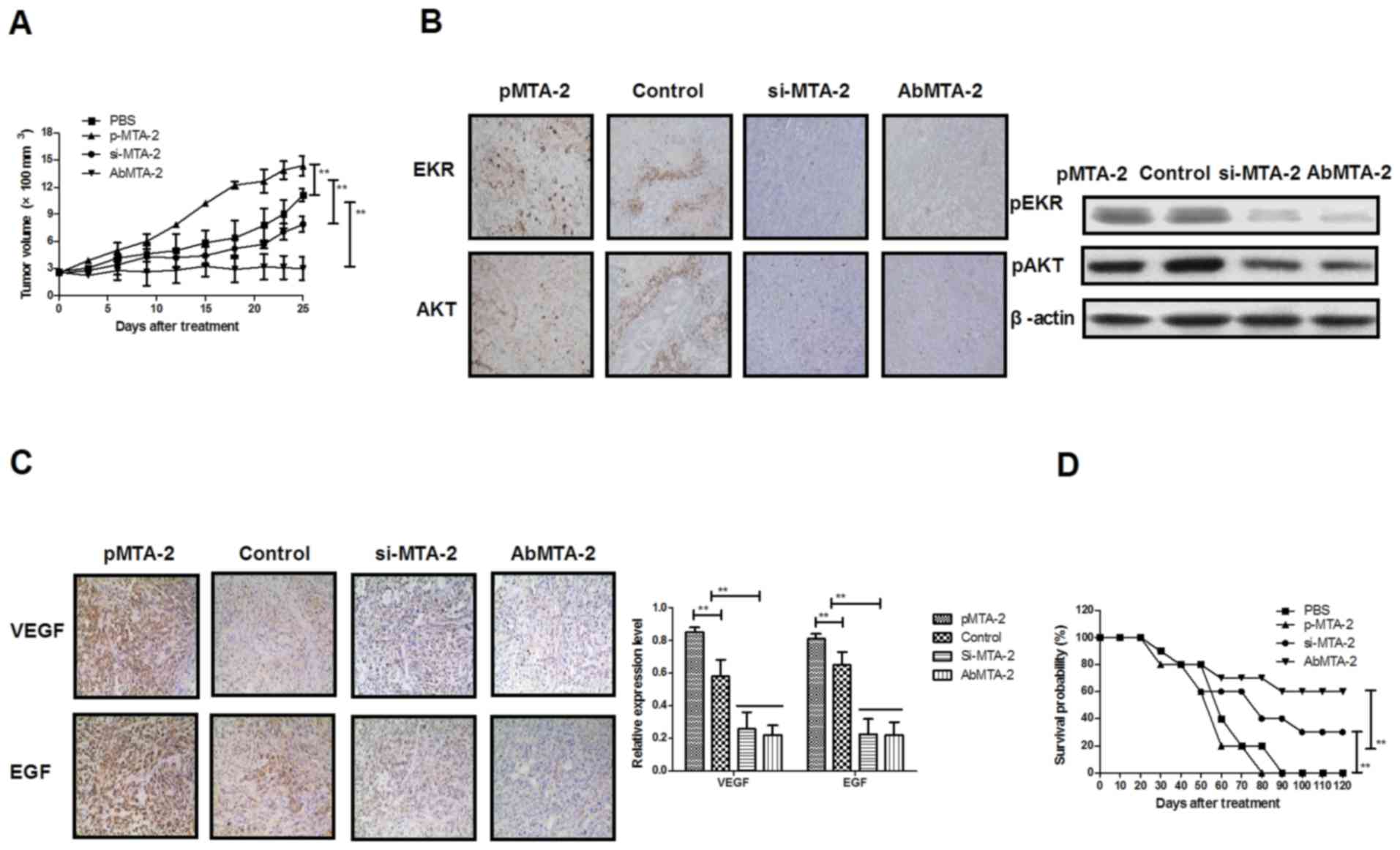|
1
|
Magnuson WJ, Yeung JT, Guillod PD,
Gettinger SN, Yu JB and Chiang VL: Impact of deferring radiation
therapy in patients with epidermal growth factor receptor-mutant
non-small cell lung cancer who develop brain metastases. Int J
Radiat Oncol Biol Phys. 95:673–679. 2016. View Article : Google Scholar : PubMed/NCBI
|
|
2
|
Fenton-Ambrose L and Kazerooni EA:
Preventative care: Lung-cancer screens now worth the cost. Nature.
514:352014. View
Article : Google Scholar : PubMed/NCBI
|
|
3
|
Zhukovsky M, Varaksin A and Pakholkina O:
Statistical analysis of observational study of the influence of
radon and other risk factors on lung cancer incidence. Radiat Prot
Dosimetry. 160:108–111. 2014. View Article : Google Scholar : PubMed/NCBI
|
|
4
|
Brody H: Lung cancer. Nature. 513:S12014.
View Article : Google Scholar : PubMed/NCBI
|
|
5
|
Moro-Sibilot D, Smit E, de Castro Carpeño
J, Lesniewski-Kmak K, Aerts JG, Villatoro R, Kraaij K, Nacerddine
K, Dyachkova Y, Smith KT, et al: Non-small cell lung cancer
patients with brain metastases treated with first-line
platinum-doublet chemotherapy: Analysis from the European FRAME
study. Lung Cancer. 90:427–432. 2015. View Article : Google Scholar : PubMed/NCBI
|
|
6
|
Barnett SA, Downey RJ, Zheng J, Plourde G,
Shen R, Chaft J, Akhurst T, Park BJ and Rusch VW: Utility of
routine pet imaging to predict response and survival after
induction therapy for non-small cell lung cancer. Ann Thorac Surg.
101:1052–1059. 2016. View Article : Google Scholar : PubMed/NCBI
|
|
7
|
Jiang SY, Zhao J, Wang MZ, Huo Z, Zhang J,
Zhong W and Xu Y: Small-cell lung cancer transformation in patients
with pulmonary adenocarcinoma: A case report and review of
literature. Medicine (Baltimore). 95:e27522016. View Article : Google Scholar : PubMed/NCBI
|
|
8
|
Kong R, Feng J, Ma Y, Zhou B, Li S, Zhang
W, Jiang J, Zhang J, Qiao Z, Zhang T, et al: Silencing NACK by
siRNA inhibits tumorigenesis in non-small cell lung cancer via
targeting Notch1 signaling pathway. Oncol Rep. 35:2306–2314. 2016.
View Article : Google Scholar : PubMed/NCBI
|
|
9
|
Bablekos GD, Analitis A, Michaelides SA,
Charalabopoulos KA and Tzonou A: Management and postoperative
outcome in primary lung cancer and heart disease co-morbidity: A
systematic review and meta-analysis. Ann Transl Med. 4:2132016.
View Article : Google Scholar : PubMed/NCBI
|
|
10
|
Liu Y, Ren Z, Wang J and Zhang S:
Epidermal growth factor receptor-tyrosine kinase inhibitor therapy
is especially beneficial to patients with exon 19 deletion compared
with exon 21 L858R mutation in non-small-cell lung cancer:
Systematic review and meta analysis. Thorac Cancer. 7:406–414.
2016. View Article : Google Scholar : PubMed/NCBI
|
|
11
|
Abar L, Vieira AR, Aune D, Stevens C,
Vingeliene S, Navarro Rosenblatt DA, Chan D, Greenwood DC and Norat
T: Blood concentrations of carotenoids and retinol and lung cancer
risk: An update of the WCRF-AICR systematic review of published
prospective studies. Cancer Med. 5:2069–2083. 2016. View Article : Google Scholar : PubMed/NCBI
|
|
12
|
Xie FJ, Lu HY, Zheng QQ, Qin J, Gao Y,
Zhang YP, Hu X and Mao WM: The clinical pathological
characteristics and prognosis of FGFR1 gene amplification in
non-small-cell lung cancer: A meta-analysis. Onco Targets Ther.
9:171–181. 2016. View Article : Google Scholar : PubMed/NCBI
|
|
13
|
Lim SH, Sun JM, Lee SH, Ahn JS, Park K and
Ahn MJ: Pembrolizumab for the treatment of non-small cell lung
cancer. Expert Opin Biol Ther. 16:397–406. 2016. View Article : Google Scholar : PubMed/NCBI
|
|
14
|
Kular H, Mudambi L, Lazarus DR, Cornwell
L, Zhu A and Casal RF: Safety and feasibility of prolonged
bronchoscopy involving diagnosis of lung cancer, systematic nodal
staging, and fiducial marker placement in a high-risk population. J
Thorac Dis. 8:1132–1138. 2016. View Article : Google Scholar : PubMed/NCBI
|
|
15
|
Nakagawa K, Asamura H, Tsuta K, Nagai K,
Yamada E, Ishii G, Mitsudomi T, Ito A, Higashiyama M, Tomita Y, et
al: The novel one-step nucleic acid amplification (OSNA) assay for
the diagnosis of lymph node metastasis in patients with non-small
cell lung cancer (NSCLC): Results of a multicenter prospective
study. Lung Cancer. 97:1–7. 2016. View Article : Google Scholar : PubMed/NCBI
|
|
16
|
Müller B, Bovet M, Yin Y, Stichel D, Malz
M, González-Vallinas M, Middleton A, Ehemann V, Schmitt J, Muley T,
et al: Concomitant expression of far upstream element (FUSE)
binding protein (FBP) interacting repressor (FIR) and its splice
variants induce migration and invasion of non-small cell lung
cancer (NSCLC) cells. J Pathol. 237:390–401. 2015. View Article : Google Scholar : PubMed/NCBI
|
|
17
|
Zhao Q, Yue J, Zhang C, Gu X, Chen H and
Xu L: Inactivation of M2 AChR/NF-κB signaling axis reverses
epithelial-mesenchymal transition (EMT) and suppresses migration
and invasion in non-small cell lung cancer (NSCLC). Oncotarget.
6:29335–29346. 2015. View Article : Google Scholar : PubMed/NCBI
|
|
18
|
Zhang H, Zhu X, Li N, Li D, Sha Z, Zheng X
and Wang H: miR-125a-3p targets MTA1 to suppress NSCLC cell
proliferation, migration, and invasion. Acta Biochim Biophys Sin
(Shanghai). 47:496–503. 2015. View Article : Google Scholar : PubMed/NCBI
|
|
19
|
Roth MT, Ivey JL, Esserman DA, Crisp G,
Kurz J and Weinberger M: Individualized medication assessment and
planning: Optimizing medication use in older adults in the primary
care setting. Pharmacotherapy. 33:787–797. 2013. View Article : Google Scholar : PubMed/NCBI
|
|
20
|
Ibrahim M, Parry S, Wilkinson D, Bilbe N,
Allen D, Forrest S, Maxwell P, O'Grady A, Starczynski J, Tanier P,
et al: ALK immunohistochemistry in non-small cell lung carcinoma
(NSCLC): Discordant staining can impact patient treatment regimen.
J Thorac Oncol. 11:2241–2247. 2016. View Article : Google Scholar : PubMed/NCBI
|
|
21
|
Cadranel J, Park K, Arrieta O, Pless M,
Bendaly E, Patel D, Sasane M, Nosal A, Swallow E, Galebach P, et
al: Characteristics, treatment patterns, and survival among ALK+
non-small cell lung cancer (NSCLC) patients treated with
crizotinib: A chart review study. Lung Cancer. 98:9–14. 2016.
View Article : Google Scholar : PubMed/NCBI
|
|
22
|
Passaro A, Spitaleri G and de Marinis F:
First-line treatment in NSCLC harboring EGFR common mutations: EGFR
TKI in monotherapy or in combination with anti-VEGF? Expert Rev
Anticancer Ther. 16:799–801. 2016. View Article : Google Scholar : PubMed/NCBI
|
|
23
|
Izuishi K and Mori H: Recent strategies
for treating stage iv gastric cancer: Roles of palliative
gastrectomy, chemotherapy, and radiotherapy. J Gastrointestin Liver
Dis. 25:87–94. 2016.PubMed/NCBI
|
|
24
|
Hsieh CE, Lin CY, Lee LY, Yang LY, Wang
CC, Wang HM, Chang JT, Fan KH, Liao CT, Yen TC, et al: Adding
concurrent chemotherapy to postoperative radiotherapy improves
locoregional control but not overall survival in patients with
salivary gland adenoid cystic carcinoma-a propensity score matched
study. Radiat Oncol. 11:472016. View Article : Google Scholar : PubMed/NCBI
|
|
25
|
Khalil EM and Anwar MM: Treatment results
of pediatric nasopharyngeal carcinoma, NCI, Cairo University
experience. J Egypt Natl Canc Inst. 27:119–128. 2015. View Article : Google Scholar : PubMed/NCBI
|
|
26
|
Wang Y, Lan G, Si Y, Deng Z, Sun J, Yang
Y, Han X, Weng J and Zhou F: Treatment and outcome of recurrent
cervical lymph nodes in patients with nasopharyngeal carcinoma
after radiotherapy. Zhonghua Er Bi Yan Hou Tou Jing Wai Ke Za Zhi.
51:183–188. 2016.(In Chinese). PubMed/NCBI
|
|
27
|
Casanova M, Özyar E, Patte C, Orbach D,
Ferrari A, Veyrat-Follet C, Errihani H, Pan J, Zhang L, Shen L, et
al: International randomized phase 2 study on the addition of
docetaxel to the combination of cisplatin and 5-fluorouracil in the
induction treatment for nasopharyngeal carcinoma in children and
adolescents. Cancer Chemother Pharmacol. 77:289–298. 2016.
View Article : Google Scholar : PubMed/NCBI
|
|
28
|
Co J, Mejia MB and Dizon JM: Evidence on
effectiveness of intensity-modulated radiotherapy versus
2-dimensional radiotherapy in the treatment of nasopharyngeal
carcinoma: Meta-analysis and a systematic review of the literature.
Head Neck. 38 Suppl 1:E2130–E2142. 2016. View Article : Google Scholar : PubMed/NCBI
|
|
29
|
Colaco RJ, Betts G, Donne A, Swindell R,
Yap BK, Sykes AJ, Slevin NJ, Homer JJ and Lee LW: Nasopharyngeal
carcinoma: A retrospective review of demographics, treatment and
patient outcome in a single centre. Clin Oncol (R Coll Radiol).
25:171–177. 2013. View Article : Google Scholar : PubMed/NCBI
|
|
30
|
Setton J, Wolden S, Caria N and Lee N:
Definitive treatment of metastatic nasopharyngeal carcinoma: Report
of 5 cases with review of literature. Head Neck. 34:753–757. 2012.
View Article : Google Scholar : PubMed/NCBI
|
|
31
|
Caponigro F, Longo F, Ionna F and Perri F:
Treatment approaches to nasopharyngeal carcinoma: A review.
Anticancer Drugs. 21:471–477. 2010. View Article : Google Scholar : PubMed/NCBI
|
|
32
|
Marcy PY, Zhu Y and Bensadoun RJ: Target
volumes in radiotherapy-head and neck tumors intensity-modulated
radiation therapy (IMRT) of nasopharyngeal carcinoma: Practical
aspects in the delineation of target volumes and organs at risk.
Cancer Radiother. 9:240–250. 2005.(In French). View Article : Google Scholar : PubMed/NCBI
|
|
33
|
Li Y, Xie G and Pan Z: Advancement
biological target therapy of nasopharyngeal carcinoma. Lin Chung Er
Bi Yan Hou Tou Jing Wai Ke Za Zhi. 29:671–673. 2015.(In Chinese).
PubMed/NCBI
|
|
34
|
Miyashita T, Tajima H, Munemoto M, Shah
FA, Harmon JW, Watanabe T, Shoji M, Okamoto K, Nakanuma S, Sakai S,
et al: Impact of histone deacetylase 1 and metastasis-associated
gene 1 expression in esophageal carcinogenesis. Oncol Lett.
8:758–764. 2014. View Article : Google Scholar : PubMed/NCBI
|
|
35
|
Lee MH, Na H, Na TY, Shin YK, Seong JK and
Lee MO: Epigenetic control of metastasis-associated protein 1 gene
expression by hepatitis B virus X protein during
hepatocarcinogenesis. Oncogenesis. 3:e882014. View Article : Google Scholar : PubMed/NCBI
|
|
36
|
Wang Y, Jia H, Lin H, Tan X, Du Z, Chen H,
Xu Y, Han X, Zhang J, Zhao S, et al: Metastasis-associated gene,
mag-1 improves tumour microenvironmental adaptation and potentiates
tumour metastasis. J Cell Mol Med. 16:3037–3051. 2012. View Article : Google Scholar : PubMed/NCBI
|
|
37
|
Reddy SD, Pakala SB, Molli PR, Sahni N,
Karanam NK, Mudvari P and Kumar R: Metastasis-associated protein
1/histone deacetylase 4-nucleosome remodeling and deacetylase
complex regulates phosphatase and tensin homolog gene expression
and function. J Biol Chem. 287:27843–27850. 2012. View Article : Google Scholar : PubMed/NCBI
|
|
38
|
Fu J, Qin L, He T, Qin J, Hong J, Wong J,
Liao L and Xu J: The TWIST/Mi2/NuRD protein complex and its
essential role in cancer metastasis. Cell Res. 21:275–289. 2011.
View Article : Google Scholar : PubMed/NCBI
|
|
39
|
Gururaj AE, Holm C, Landberg G and Kumar
R: Breast cancer-amplified sequence 3, a target of
metastasis-associated protein 1, contributes to tamoxifen
resistance in premenopausal patients with breast cancer. Cell
Cycle. 5:1407–1410. 2006. View Article : Google Scholar : PubMed/NCBI
|
|
40
|
Jia W, Zhu J, Martin TA, Sanders AJ, Yang
X, Cheng S, Yu H, Jia G, Liu X, Lu R and Jiang WG: Expression of
metastasis-associated gene-1 is associated with bone invasion and
tumor stage in human pituitary adenomas. Cancer Genomics
Proteomics. 12:113–118. 2015.PubMed/NCBI
|
|
41
|
Zhang B, Zhang H and Shen G:
Metastasis-associated protein 2 (MAP2) promotes the metastasis of
non-small-cell lung cancer through the inhibition of the cell
adhesion molecule Ep-CAM and E-cadherin. Jpn J Clin Oncol.
46:3932016. View Article : Google Scholar : PubMed/NCBI
|
|
42
|
Livak KJ and Schmittgen TD: Analysis of
relative gene expression data using real-time quantitative PCR and
the 2(-Delta Delta C(T)) method. Methods. 25:402–408. 2001.
View Article : Google Scholar : PubMed/NCBI
|
|
43
|
Shi S, Zhang P, Cheng Q, Wu J, Cui J,
Zheng Y, Bai XY and Chen X: Immunohistochemistry of deparaffinised
sections using antigen retrieval with microwave combined pressure
cooking versus immunofluorescence in the assessment of human renal
biopsies. J Clin Pathol. 66:374–380. 2013. View Article : Google Scholar : PubMed/NCBI
|
|
44
|
Zhuang T, Djemil T, Qi P, Magnelli A,
Stephans K, Videtic G and Xia P: Dose calculation differences
between Monte Carlo and pencil beam depend on the tumor locations
and volumes for lung stereotactic body radiation therapy. J Appl
Clin Med Phys. 14:40112013. View Article : Google Scholar : PubMed/NCBI
|
|
45
|
Lee YT, Liu CJ, Hu YW, Teng CJ, Tzeng CH,
Yeh CM, Chen TJ, Lin JK, Lin CC, Lan YT, et al: Incidence of second
primary malignancies following colorectal cancer: A distinct
pattern of occurrence between colon and rectal cancers and
association of co-morbidity with second primary malignancies in a
population-based Cohort of 98,876 patients in Taiwan. Medicine
(Baltimore). 94:e10792015. View Article : Google Scholar : PubMed/NCBI
|
|
46
|
Hui D, Elsayem A, Li Z, De La Cruz M,
Palmer JL and Bruera E: Antineoplastic therapy use in patients with
advanced cancer admitted to an acute palliative care unit at a
comprehensive cancer center: A simultaneous care model. Cancer.
116:2036–2043. 2010. View Article : Google Scholar : PubMed/NCBI
|
|
47
|
Beck JT: Potential role for mammalian
target of rapamycin inhibitors as first-line therapy in hormone
receptor-positive advanced breast cancer. Onco Targets Ther.
8:3629–3638. 2015. View Article : Google Scholar : PubMed/NCBI
|
|
48
|
Uhara H: Molecular target therapies for
skin cancers. Nihon Rinsho. 73:1391–1397. 2015.PubMed/NCBI
|
|
49
|
Oda K: Recent process of molecular target
therapies in ovarian serous and endometrioid carcinomas on basis of
intergrated genomic characterization. Gan To Kagaku Ryoho.
42:169–173. 2015.(In Japanese). PubMed/NCBI
|
|
50
|
Chen C, Fei Z, Chen L, Bai P, Lin X and
Pan J: Will weight loss cause significant dosimetric changes of
target volumes and organs at risk in nasopharyngeal carcinoma
treated with intensity-modulated radiation therapy? Med Dosim.
39:34–37. 2014. View Article : Google Scholar : PubMed/NCBI
|
|
51
|
Liu SL, Han Y, Zhang Y, Xie CY, Wang EH,
Miao Y, Li HY, Xu HT and Dai SD: Expression of
metastasis-associated protein 2 (MAP2) might predict proliferation
in non-small cell lung cancer. Target Oncol. 7:135–143. 2012.
View Article : Google Scholar : PubMed/NCBI
|
|
52
|
Kim DS, Park KM, Won YS, Kim JY, Lee JK,
Kim JG, Oh ST, Jung SS and Kang WK: Occurrence and prognosis of
symptomatic venous thromboembolism in colorectal cancer surgery
patients. Vasc Specialist Int. 30:49–55. 2014. View Article : Google Scholar : PubMed/NCBI
|
|
53
|
Wink KC, Belderbos JS, Dieleman EM, Rossi
M, Rasch CR, Damhuis RA, Houben RM and Troost EG: Improved
progression free survival for patients with diabetes and locally
advanced non-small cell lung cancer (NSCLC) using metformin during
concurrent chemoradiotherapy. Radiother Oncol. 118:453–459. 2016.
View Article : Google Scholar : PubMed/NCBI
|
|
54
|
Charvat H, Sasazuki S, Inoue M, Iwasaki M,
Sawada N, Shimazu T, Yamaji T and Tsugane S; JPHC Study Group, :
Prediction of the 10-year probability of gastric cancer occurrence
in the Japanese population: The JPHC study cohort II. Int J Cancer.
138:320–331. 2016. View Article : Google Scholar : PubMed/NCBI
|
|
55
|
Shameem R, Hamid MS, Xu KY and Wu S:
Comparative analysis of the effectiveness of abiraterone before and
after docetaxel in patients with metastatic castration-resistant
prostate cancer. World J Clin Oncol. 6:64–72. 2015. View Article : Google Scholar : PubMed/NCBI
|
|
56
|
Trinh XB, Tjalma WA, Vermeulen PB, Van den
Eynden G, van der Auwera I, Van Laere SJ, Helleman J, Berns EM,
Dirix LY and van Dam PA: The VEGF pathway and the AKT/mTOR/p70S6K1
signalling pathway in human epithelial ovarian cancer. Br J Cancer.
100:971–978. 2009. View Article : Google Scholar : PubMed/NCBI
|
|
57
|
Zhu X, Song Y, Huo R, Zhang J, Sun S, He
Y, Gao H, Zhang M, Sun X, Zhai T, et al: Cyr61 participates in the
pathogenesis of rheumatoid arthritis by promoting proIL-1β
production by fibroblast-like synoviocytes through an AKT-dependent
NF-κB signaling pathway. Clin Immunol. 157:187–197. 2015.
View Article : Google Scholar : PubMed/NCBI
|
|
58
|
Nakamura K, Nozawa K, Aoyagi Y, Ishihara
S, Matsuda K, Fukushima J and Watanabe T: A case report of thyroid
gland metastasis associated with lung metastasis from colon cancer.
Tumori. 97:229–232. 2011. View Article : Google Scholar : PubMed/NCBI
|


















